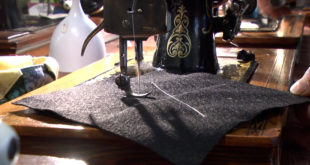Winter is coming, and Michigan department of health and human services has encouraged residents to check service on their home’s carbon monoxide detectors. It can be fairly easy to prevent carbon monoxide poisoning with a few easy steps. Carbon Monoxide is a gas that forms when fossil fuels such as gasoline, propane, or natural gas, are burned. It is a colorless , tasteless and odorless poisonous gas, known as a silent killer, as most deaths occur at home and are caused by improper ventilation, or care for furnaces, stoves, water heaters, generators, dryers, space heaters, and fireplace chimneys. Symptoms of carbon monoxide exposure include flu-like symptoms – headache, dizziness, fatigue, shortness of breath, confusion and nausea. At least twice a year, typically done around daylight savings, check to ensure furnaces and carbon monoxide detectors are working properly, and change batteries. Each year the Center for Disease Control and prevention estimates 50,000 Americans are hospitalized for accidental carbon monoxide poisoning. In 2019 Michigan alone saw over 1,000 emergency room visits for carbon monoxide poisoning.
CO poisoning can be prevented by practicing the safety tips listed below and knowing the symptoms of exposure. At high levels, CO can cause death within minutes. If you suspect you may be experiencing CO poisoning, or your CO detector alarm goes off, go outside immediately for fresh air and THEN call 911.
To protect yourself and your family from CO, follow these safety tips:
- Make sure you have working CO detectors.Detectors on every level of your home, including the basement, are strongly recommended. Detectors can be purchased at most hardware and big box stores. Daylight saving time is a good time each year to replace the batteries in your detector and push the “Test” button to be sure it’s working properly.
- Change batteries every six months (fall and spring) and replace your detector every five years or according to manufacturer’s instructions.
- Use a battery-powered detector where you have fuel burning devices but no electric outlets. Having a CO detector handy when using tents, cabins, RVs and boats with enclosed cabinsis a good safety practice.
- Have your furnace or wood-burning stove inspected annually. Hire a professional to make sure it is functionally sound and vents properly outside the home.
- Generators should be run at a safe distance (at least 20 feet) from the home. Never run a generator in the home, garage, or right next to windows or doors.
- Never run a car in an enclosed space.If a vehicle is running, you must have a door open to the outside.
- Never run a gasoline or propane heater or a grill (gas or charcoal) inside your home or in an unventilated garage.Any heating system that burns fuel produces CO.
Visit Michigan.gov/MiTracking for more information about CO poisoning.
 Keweenaw Report Your Source for Local News and Sports
Keweenaw Report Your Source for Local News and Sports





